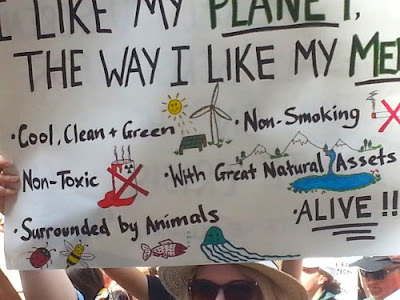Usually the finance guy on the news shows charts of interest rates, inflation, company performance and sharemarket movements. So it was a little bit surprising to see this last night.
It comes from the latest IPCC report. You can read more about that
here and
here. But the basics are that we are likely to exceed 1.5 degrees of warming (considered the upper limit of what would be a "viable" society) by 2030.
For Australia this means "fires are projected to get worse and more frequent, and fire seasons will last longer. In eastern Australia, if warming exceeds 2C, then droughts are projected to increase. Across southern Australia drought has already increased, and projections suggest that will worsen."
So why is this on the finance report?
I did some digging and finance journalist Alan Kohler has doing a fair bit of research in this area.
He wrote an article about Australian businesses that are taking advantage of the move to electric vehicles, and the massive drop in the cost of renewable energy.
He's also written an article titled Australia's solar tsunami to trigger coal collapse - explaining how inflexible coal-fired power stations are on the brink of being unprofitable and closing. That's another business story, similar to the way Netflix made Blockbuster unviable.
Business is about managing risks
More recently Alan Kohler has written about how Australia manages risk. When a vaccine has a 0.0011% chance of a side effect we take steps to avoid that risk. But when a country faces a risk (climate change) that is hundreds of times more likely we seem to do nothing.
He says that a "4 degree rise in the average global temperature would make large parts of the planet uninhabitable and lead to the total collapse of the banking system."
Even if we avoid that, a mere 2 degrees of warming (which is still quite likely) would mean "the banking system barely survives".
It seems that climate change information should be very important to the finance community. And all of us.
PS. Zooming in on that graph (and the current steep slope) it looks like we need to get serious about putting the brakes on pretty soon - if we're going to have any chance of keeping under 1.5 or even 2 degrees.














































